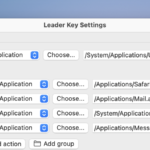The Ultimate Guide to Fitness: Transform Your Life
Date: October 2023
Understanding Fitness and Its Importance
Fitness encompasses more than just achieving a specific weight or body shape; it is a holistic approach that includes physical, mental, and emotional well-being. Engaging in regular physical activity enhances cardiovascular health, strengthens muscles, improves flexibility, and boosts overall mood. Prioritizing fitness can lead to a longer, healthier life.
Components of Physical Fitness
To fully grasp fitness, it’s essential to recognize its fundamental components:
- Cardiovascular Endurance: This refers to the heart and lungs’ ability to supply oxygen during sustained physical activity. Activities like running and cycling significantly enhance this aspect.
- Muscular Strength: This involves the strength and power of muscles. Weightlifting and resistance training are effective ways to build this component.
- Muscular Endurance: This is the capacity of a muscle or group of muscles to exert force repeatedly over time. It can be improved through activities such as circuit training.
- Flexibility: Flexibility refers to the range of motion in joints. Practices like yoga and stretching exercises can help enhance flexibility.
- Body Composition: This term describes the proportion of fat versus lean mass in the body. Maintaining a healthy body composition is crucial for overall health.
Creating a Balanced Fitness Routine
Establishing a well-rounded fitness regimen should incorporate various activities that challenge different aspects of physical fitness. A balanced routine might include:
- Aerobic Activities: Aim for at least 150 minutes of moderate aerobic exercise each week, such as brisk walking, swimming, or dancing.
- Strength Training: Include strength workouts at least two days a week, focusing on all major muscle groups.
- Flexibility Exercises: Incorporate stretching into daily routines to enhance flexibility and prevent injuries.
- Balance and Agility Training: Activities like yoga or tai chi can improve balance and coordination.
Setting Achievable Fitness Goals
Developing tangible fitness goals is fundamental to success. Goals should be SMART: Specific, Measurable, Achievable, Relevant, and Time-bound. For instance, setting a goal to run a 5k in three months provides clear direction and motivation.
Nutrition and Hydration
Nutrition plays a vital role in supporting fitness endeavors. A balanced diet rich in fruits, vegetables, lean proteins, and whole grains fuels the body for workouts and aids recovery. Hydration is equally significant; drinking enough water enhances performance and overall health.












